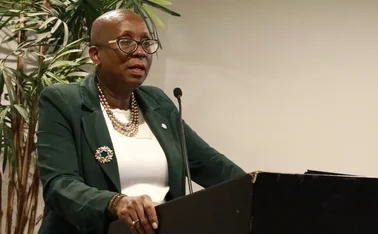
Harnessing network theory for more prudent bank supervision
Network techniques offer new insights into financial risk

Economic policy is reactive, almost by definition. Policy-makers react to market failures with long and variable lags. International supervisory cooperation is no exception. While financial internationalisation and repeated turmoil in the financial markets had resulted in improved co-operation over recent decades,1 pre-crisis supervisory cooperation was weak in a number of respects.
The financial landscape looks somewhat like a weather map. Depression and areas of high pressure move around the
Only users who have a paid subscription or are part of a corporate subscription are able to print or copy content.
To access these options, along with all other subscription benefits, please contact info@centralbanking.com or view our subscription options here: http://subscriptions.centralbanking.com/subscribe
You are currently unable to print this content. Please contact info@centralbanking.com to find out more.
You are currently unable to copy this content. Please contact info@centralbanking.com to find out more.
Copyright Infopro Digital Limited. All rights reserved.
As outlined in our terms and conditions, https://www.infopro-digital.com/terms-and-conditions/subscriptions/ (point 2.4), printing is limited to a single copy.
If you would like to purchase additional rights please email info@centralbanking.com
Copyright Infopro Digital Limited. All rights reserved.
You may share this content using our article tools. As outlined in our terms and conditions, https://www.infopro-digital.com/terms-and-conditions/subscriptions/ (clause 2.4), an Authorised User may only make one copy of the materials for their own personal use. You must also comply with the restrictions in clause 2.5.
If you would like to purchase additional rights please email info@centralbanking.com








